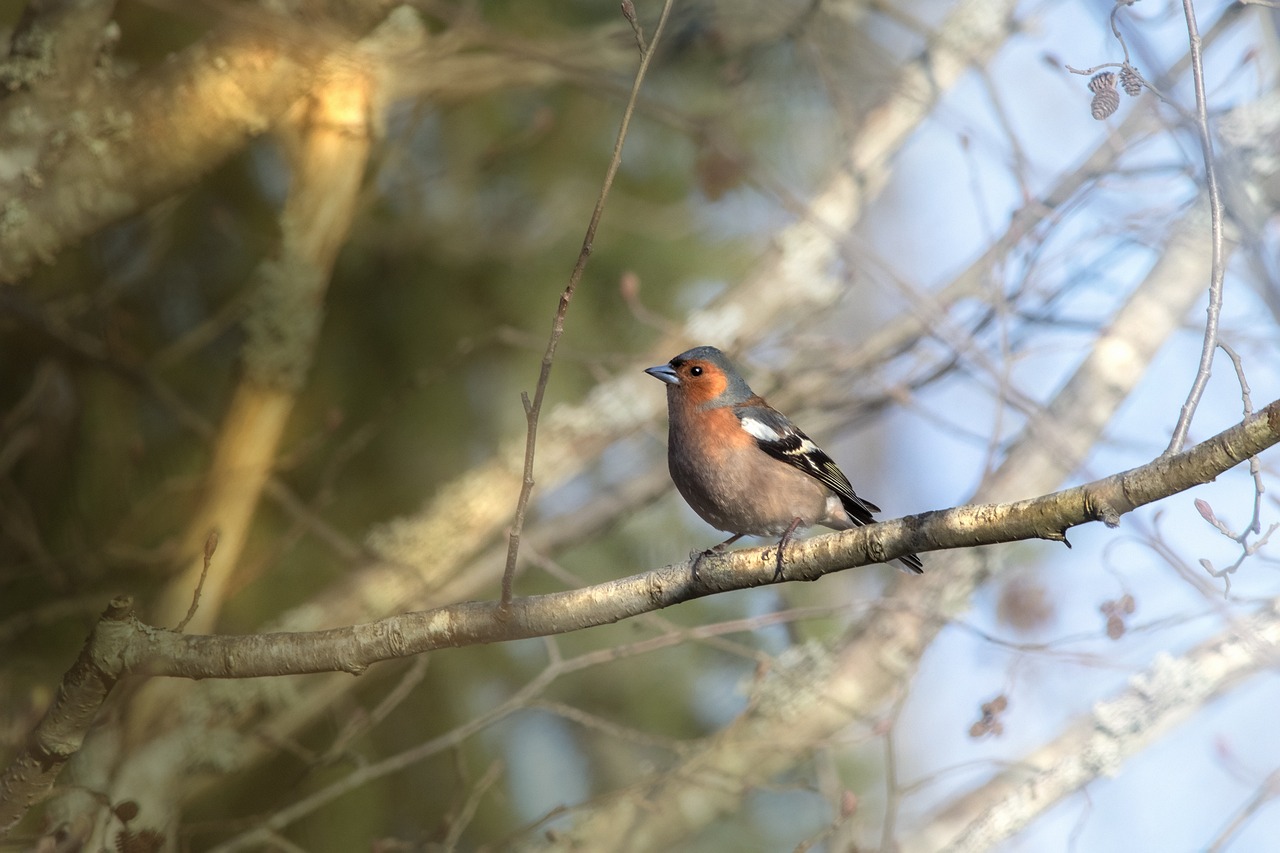The common chaffinch (Fringilla coelebs) is one of the most widespread and recognizable songbirds in Europe. Here’s a brief overview of this delightful bird:
Appearance
- Size: The common chaffinch measures about 14.5 cm (5.7 inches) in length with a wingspan of 24.5-28.5 cm (9.6-11.2 inches).
- Plumage: Males are brightly colored with a blue-grey cap, pinkish underparts, and a distinctive green rump. Females are more subdued, with brownish-grey plumage, but both sexes have white wing bars and tail patches that are conspicuous in flight.
Habitat
- Range: The common chaffinch is found throughout Europe, parts of North Africa, and western Asia. It has also been introduced to New Zealand and South Africa.
- Environment: Chaffinches inhabit a variety of environments, including woodlands, gardens, parks, and farmlands. They prefer areas with a mix of trees and open spaces.
Behavior
- Diet: Their diet mainly consists of seeds and invertebrates. Insects form a significant part of their diet during the breeding season.
- Song: Male chaffinches are known for their distinctive and cheerful song, which they use to attract mates and defend their territory. The song is a familiar sound in many European woodlands and gardens.
- Reproduction: They typically nest in trees or bushes, constructing a cup-shaped nest out of moss, grass, and feathers. The female lays 4-5 eggs, which she incubates for about two weeks. Both parents feed the chicks.
Adaptations
- Feeding: Chaffinches have strong, conical beaks ideal for cracking seeds.
- Migration: While many common chaffinches are resident birds, those from colder regions migrate south during the winter to find more favorable conditions.
Conservation
- Status: The common chaffinch is not currently considered at risk, being classified as “Least Concern” by the IUCN. Its wide range and adaptability to various habitats contribute to its stable population.
- Threats: Despite their overall stable status, chaffinches can be affected by habitat loss and changes in agricultural practices. Conservation efforts focus on maintaining diverse habitats that support a variety of food sources and nesting sites.
The common chaffinch is a vibrant and versatile bird, cherished for its lively presence and melodious song. Its adaptability and widespread presence make it a beloved species across its range.
Visited 1,050 times, 24 visit(s) today
Views: 1341
Subscribe to the newsletter:
